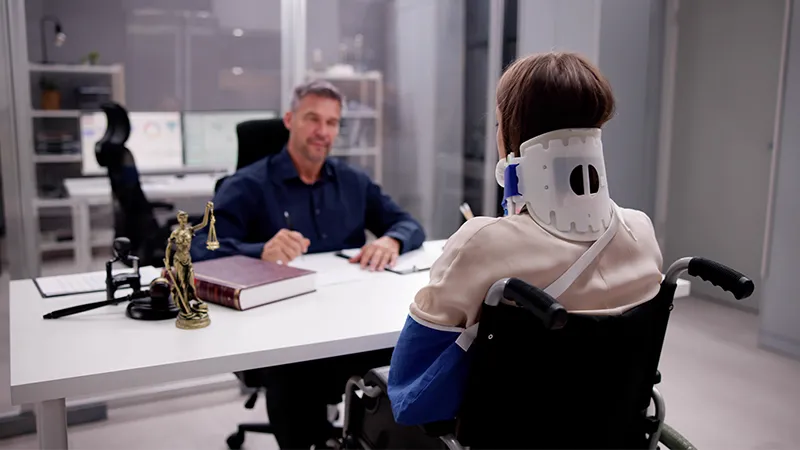



If involved in a car accident in Pennsylvania, understanding your insurance coverage is incredibly important, especially when it comes to limited tort. Choosing limited tort coverage means you pay lower insurance premiums, but it limits your ability to sue for certain damages after an accident. At The Rummel Firm, we help clients navigate these complex rules and fight to secure the compensation they deserve.
Limited tort coverage is an option Pennsylvania drivers can select on their auto insurance policies to reduce premiums. With limited tort, you are compensated for economic losses like medical bills, lost wages, and property damage by your own insurance company, regardless of fault.
However, limited tort restricts your right to sue the at-fault driver for non-economic damages such as pain and suffering, unless your injuries meet a specific “serious injury” threshold.
The serious injury threshold is a legal standard in Pennsylvania that determines whether your injuries are severe enough to allow you to sue for pain and suffering under limited tort coverage. According to Pennsylvania law, a serious injury means one that results in death, a serious impairment of bodily function, or a permanent serious disfigurement. This isn’t just about the type of injury you have, but how it affects your body’s ability to function.
For example, an injury may qualify as serious if it causes paralysis, traumatic brain injury, loss of limbs, or permanent scarring. Even some soft tissue injuries can meet the threshold if they substantially limit your bodily functions and are well documented by medical professionals.
Courts will look at several factors when deciding if your injury passes the serious injury threshold, including the extent and duration of the impairment, the type of treatment you needed, and how the injury impacts your daily life. Because this can be a complex and fact-specific determination, having an experienced personal injury attorney on your side is crucial to help prove that your injury qualifies.
There are important exceptions where limited tort doesn’t apply, and you can pursue full compensation for your injuries, including pain and suffering:
Knowing these exceptions can be the difference between a small payout and a full recovery that reflects the true impact of your injuries.
Yes, Pennsylvania law requires that all drivers must be offered the option to purchase limited tort coverage when selecting auto insurance. Limited tort helps keep insurance premiums lower, making it an attractive choice for many drivers.
However, it’s important to understand these savings come with consequences limiting your ability to seek compensation for non-economic damages unless your harm meets the serious injury threshold or falls under one of the exceptions. This is why many insurance experts and attorneys recommend carefully considering full tort coverage, especially given the potential costs of an accident.
In Pennsylvania, like with most personal injury claims, you generally have two years from the date of the accident to file a lawsuit seeking damages, whether under limited or full tort. Missing this deadline, called the statute of limitations, often means losing your right to recover compensation. Because limited tort claims can involve complex legal issues to prove serious injury or assert exceptions, it’s crucial to contact an experienced attorney as soon as possible to preserve your rights and investigate your case thoroughly.
Navigating the restrictions and exceptions of limited tort insurance requires experienced legal guidance. The Rummel Firm is skilled at evaluating the specifics of your injury and insurance policy to determine if you qualify to break the limited tort barrier. We aggressively challenge insurance companies when they try to minimize your claim and fight for the full compensation you deserve under the law.
You don’t have to accept less just because you chose limited tort to save on premiums. With our help, victims can build strong cases to prove serious injury or assert exceptions to limited tort restrictions. We work closely with medical experts to document your injuries thoroughly and advocate forcefully on your behalf.
Insurance companies often prefer to pay as little as possible and rely on limited tort coverage to deny pain and suffering claims. The Rummel Firm fights this bias head-on, defending your rights and ensuring that your claim fairly represents the true cost of the accident, both physical and emotional.
If you or a loved one has been injured in a Pennsylvania car accident with limited tort coverage, don’t navigate this complex system alone. Time is limited, so contact The Rummel Firm today for a free consultation. We help you understand your rights, evaluate possible exceptions, and fight tirelessly to recover the full compensation you deserve. Let us be your trusted advocate every step of the way. Your recovery deserves nothing less.
